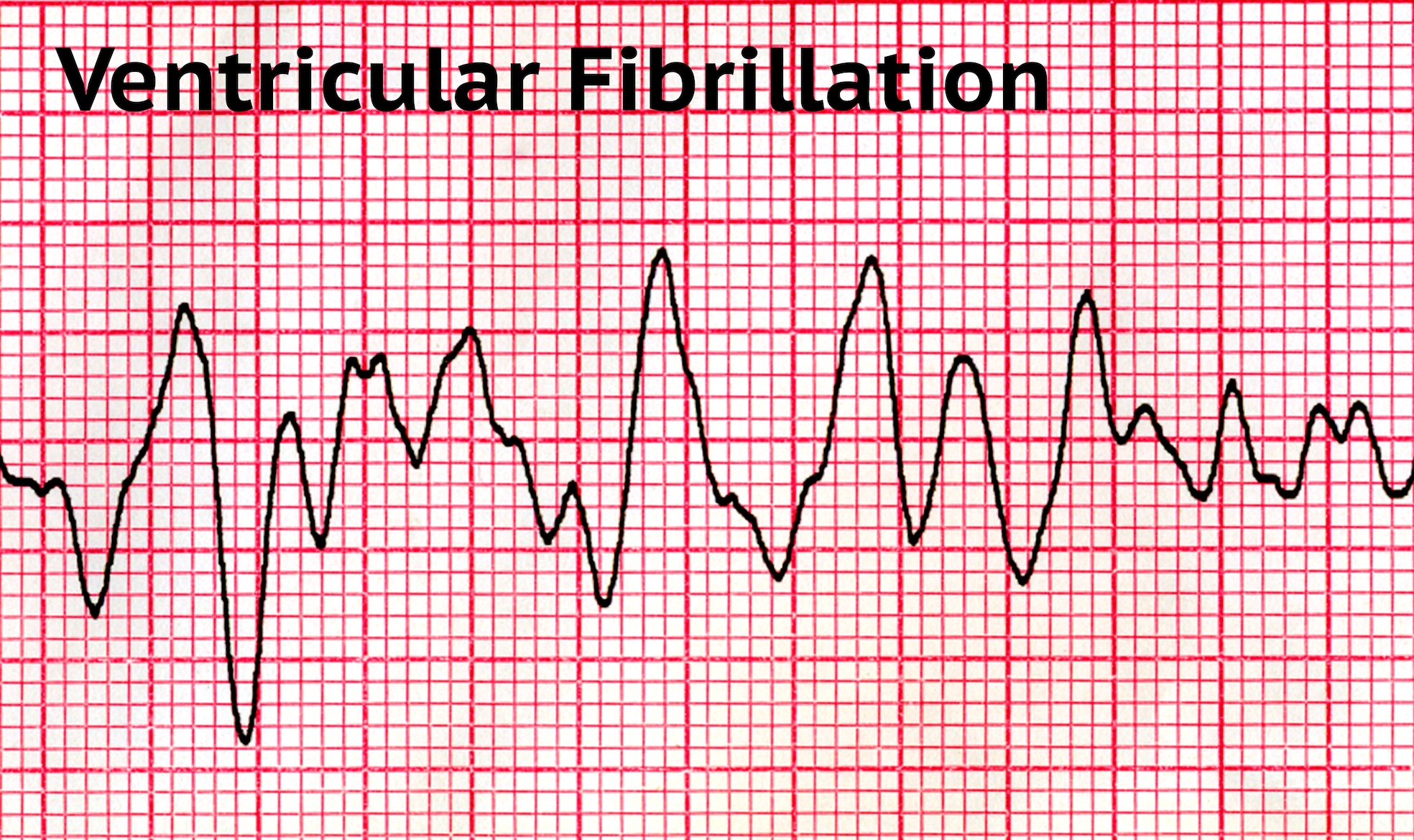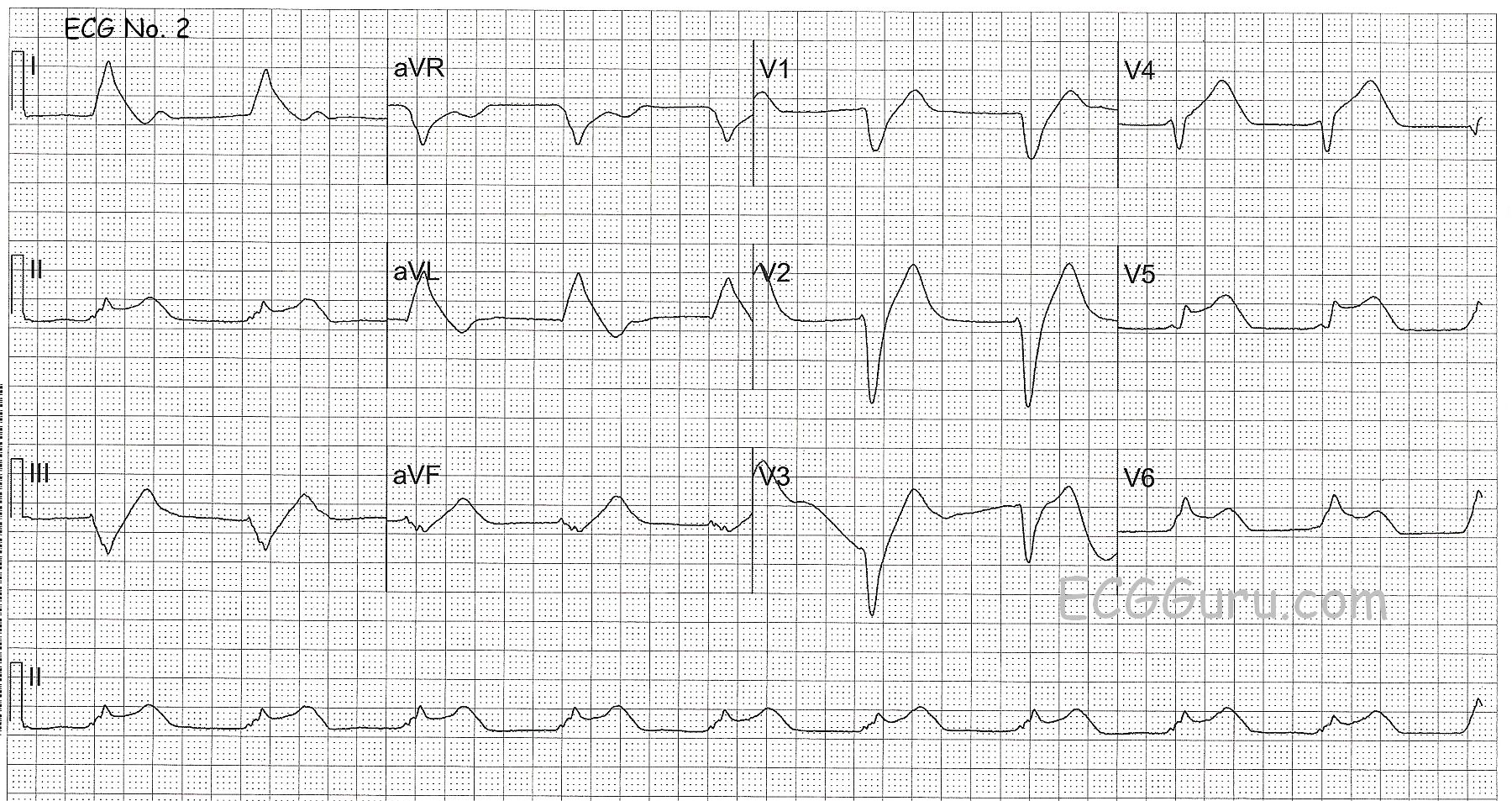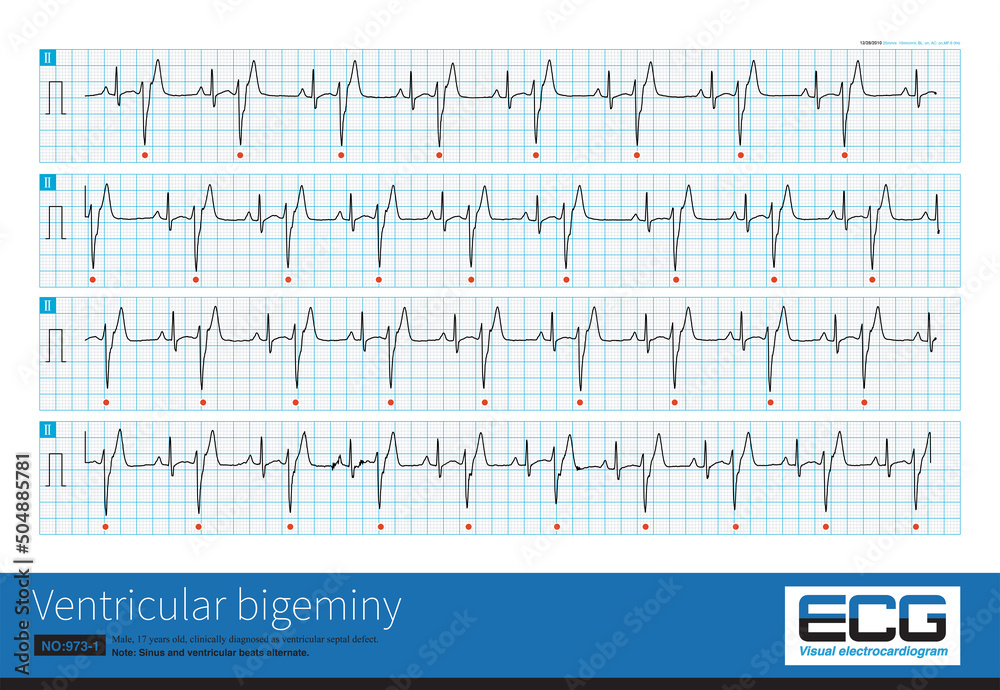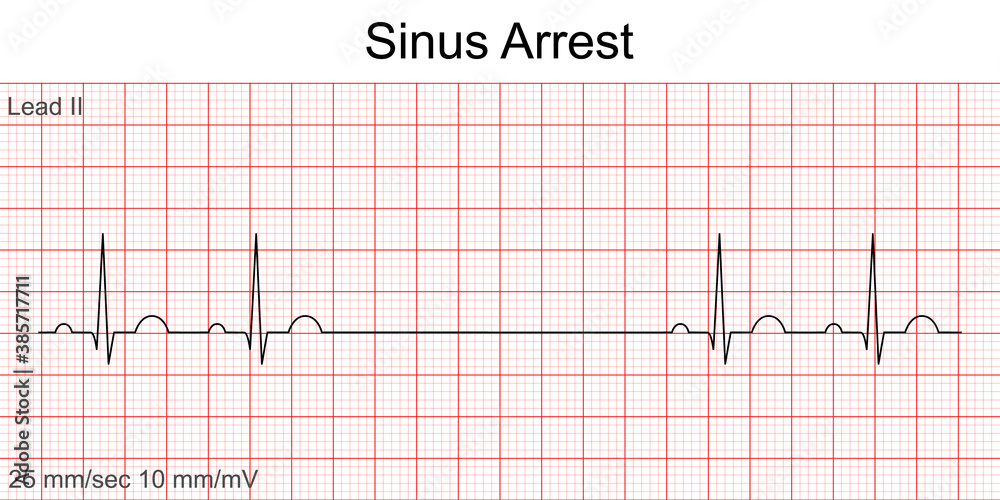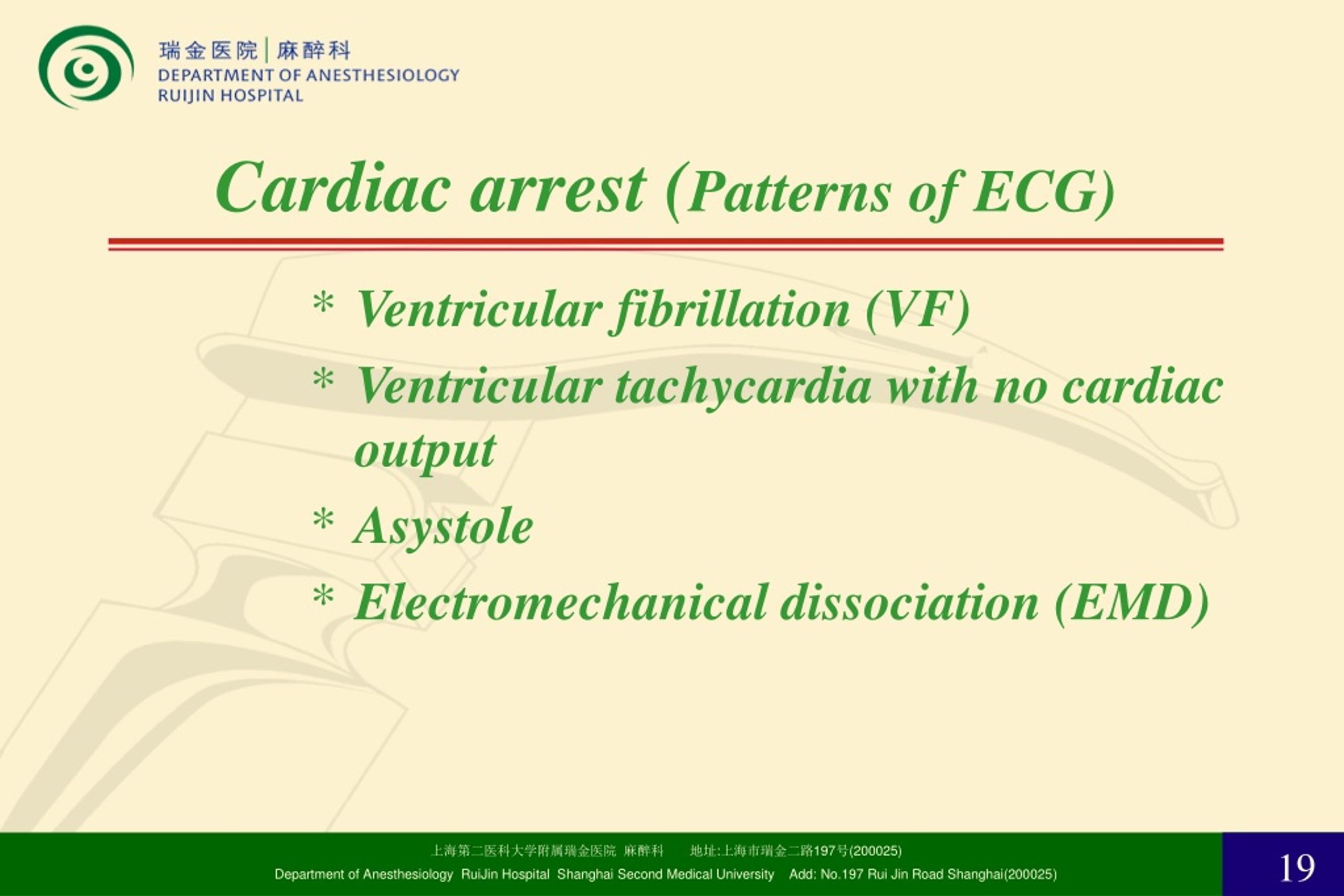Ecg In Cardiac Arrest - Whether it’s identifying shockable rhythms during cardiac arrest or spotting unstable bradycardia, the ecg tells you what to do next. Cardiac arrest is a serious malfunction or stop of the electrical and mechanical activity of the heart. The ecg shows atrial paced rhythm, as evidenced by the pacing spikes. There are four primary alterations in the. During cardiac arrest, identification of the cardiac rhythm will help to determine the correct treatment. What is the most likely cause of his cardiac arrest? Ecg findings in ventricular fibrillation (vf) ventricular fibrillation (vf) is the most important shockable cardiac arrest rhythm. Establish cardiac monitoring as soon.
The ecg shows atrial paced rhythm, as evidenced by the pacing spikes. Cardiac arrest is a serious malfunction or stop of the electrical and mechanical activity of the heart. During cardiac arrest, identification of the cardiac rhythm will help to determine the correct treatment. What is the most likely cause of his cardiac arrest? Establish cardiac monitoring as soon. Whether it’s identifying shockable rhythms during cardiac arrest or spotting unstable bradycardia, the ecg tells you what to do next. Ecg findings in ventricular fibrillation (vf) ventricular fibrillation (vf) is the most important shockable cardiac arrest rhythm. There are four primary alterations in the.
Whether it’s identifying shockable rhythms during cardiac arrest or spotting unstable bradycardia, the ecg tells you what to do next. Ecg findings in ventricular fibrillation (vf) ventricular fibrillation (vf) is the most important shockable cardiac arrest rhythm. Establish cardiac monitoring as soon. What is the most likely cause of his cardiac arrest? There are four primary alterations in the. Cardiac arrest is a serious malfunction or stop of the electrical and mechanical activity of the heart. During cardiac arrest, identification of the cardiac rhythm will help to determine the correct treatment. The ecg shows atrial paced rhythm, as evidenced by the pacing spikes.
What are the Two Shockable Rhythms in Cardiac Arrest? Free CPR Training
There are four primary alterations in the. What is the most likely cause of his cardiac arrest? During cardiac arrest, identification of the cardiac rhythm will help to determine the correct treatment. Establish cardiac monitoring as soon. Cardiac arrest is a serious malfunction or stop of the electrical and mechanical activity of the heart.
ECG Challenge Cardiac Arrest In A 41YearOld Woman ECG Guru
Cardiac arrest is a serious malfunction or stop of the electrical and mechanical activity of the heart. The ecg shows atrial paced rhythm, as evidenced by the pacing spikes. There are four primary alterations in the. What is the most likely cause of his cardiac arrest? Ecg findings in ventricular fibrillation (vf) ventricular fibrillation (vf) is the most important shockable.
arrhythmia, background, cardiac, cardiac arrest, cardiogram, cardiology
There are four primary alterations in the. During cardiac arrest, identification of the cardiac rhythm will help to determine the correct treatment. Establish cardiac monitoring as soon. Whether it’s identifying shockable rhythms during cardiac arrest or spotting unstable bradycardia, the ecg tells you what to do next. Cardiac arrest is a serious malfunction or stop of the electrical and mechanical.
Pulseless Electrical Activity Ecg Strip
Cardiac arrest is a serious malfunction or stop of the electrical and mechanical activity of the heart. The ecg shows atrial paced rhythm, as evidenced by the pacing spikes. During cardiac arrest, identification of the cardiac rhythm will help to determine the correct treatment. What is the most likely cause of his cardiac arrest? There are four primary alterations in.
Surface Electrocardiogram Predictors of Sudden Cardiac Arrest Ochsner
The ecg shows atrial paced rhythm, as evidenced by the pacing spikes. Establish cardiac monitoring as soon. Ecg findings in ventricular fibrillation (vf) ventricular fibrillation (vf) is the most important shockable cardiac arrest rhythm. Cardiac arrest is a serious malfunction or stop of the electrical and mechanical activity of the heart. What is the most likely cause of his cardiac.
Obraz Electrocardiogram show Sinus arrest pattern. Cardiac fibrillation
Ecg findings in ventricular fibrillation (vf) ventricular fibrillation (vf) is the most important shockable cardiac arrest rhythm. During cardiac arrest, identification of the cardiac rhythm will help to determine the correct treatment. What is the most likely cause of his cardiac arrest? Cardiac arrest is a serious malfunction or stop of the electrical and mechanical activity of the heart. Whether.
Cardiac arrest and abnormal ECG in a 16yearold male patient Heart
What is the most likely cause of his cardiac arrest? The ecg shows atrial paced rhythm, as evidenced by the pacing spikes. Cardiac arrest is a serious malfunction or stop of the electrical and mechanical activity of the heart. Ecg findings in ventricular fibrillation (vf) ventricular fibrillation (vf) is the most important shockable cardiac arrest rhythm. There are four primary.
PPT Clinical Anaesthesiology PowerPoint Presentation, free download
Whether it’s identifying shockable rhythms during cardiac arrest or spotting unstable bradycardia, the ecg tells you what to do next. The ecg shows atrial paced rhythm, as evidenced by the pacing spikes. There are four primary alterations in the. Ecg findings in ventricular fibrillation (vf) ventricular fibrillation (vf) is the most important shockable cardiac arrest rhythm. Establish cardiac monitoring as.
Electromechanical Separation Ecg Cardiac Arrest Heart Stock
Ecg findings in ventricular fibrillation (vf) ventricular fibrillation (vf) is the most important shockable cardiac arrest rhythm. What is the most likely cause of his cardiac arrest? During cardiac arrest, identification of the cardiac rhythm will help to determine the correct treatment. Whether it’s identifying shockable rhythms during cardiac arrest or spotting unstable bradycardia, the ecg tells you what to.
Dr. Smith's ECG Blog Cardiac Arrest and ST Elevation You Should Learn
During cardiac arrest, identification of the cardiac rhythm will help to determine the correct treatment. What is the most likely cause of his cardiac arrest? Ecg findings in ventricular fibrillation (vf) ventricular fibrillation (vf) is the most important shockable cardiac arrest rhythm. There are four primary alterations in the. The ecg shows atrial paced rhythm, as evidenced by the pacing.
The Ecg Shows Atrial Paced Rhythm, As Evidenced By The Pacing Spikes.
What is the most likely cause of his cardiac arrest? Cardiac arrest is a serious malfunction or stop of the electrical and mechanical activity of the heart. There are four primary alterations in the. Ecg findings in ventricular fibrillation (vf) ventricular fibrillation (vf) is the most important shockable cardiac arrest rhythm.
Whether It’s Identifying Shockable Rhythms During Cardiac Arrest Or Spotting Unstable Bradycardia, The Ecg Tells You What To Do Next.
Establish cardiac monitoring as soon. During cardiac arrest, identification of the cardiac rhythm will help to determine the correct treatment.
